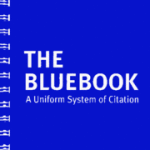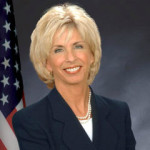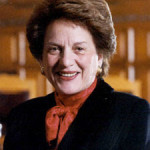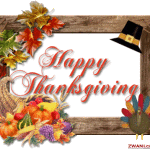 The Library has hundreds of electronic books (E-Books) available in our collection. They are on a wealth of law-related topics and are accessible through SARA, the library’s online catalog. If you would like to learn how to find them, see examples of what we have and learn how to view or download them, please stop by the table on the first floor of the Library on Thursday, March 10th, 2016. We will be there from 12:30pm to 2:00pm. There will be e-book pens and chocolate candy for all those who stop by for a demonstration. See you there!
The Library has hundreds of electronic books (E-Books) available in our collection. They are on a wealth of law-related topics and are accessible through SARA, the library’s online catalog. If you would like to learn how to find them, see examples of what we have and learn how to view or download them, please stop by the table on the first floor of the Library on Thursday, March 10th, 2016. We will be there from 12:30pm to 2:00pm. There will be e-book pens and chocolate candy for all those who stop by for a demonstration. See you there!
Author Archives: Linda Holmes
International & Foreign Public Interest Law Research Session
 Interning at an organization that works internationally this summer? Interested in international law or comparative law? Research skills are key in this area of practice.
Interning at an organization that works internationally this summer? Interested in international law or comparative law? Research skills are key in this area of practice.
Learn the basics of international/foreign law research with Associate Librarian for International Law Jean Davis! This program will also feature a special guest from the International Legal Foundation. The guest will describe selected projects assigned to interns. Then Professor Davis will suggest tools to research one of the projects. Professor Davis will also highlight sources to research international internships and fellowships.
Date: Monday, February 29, 2016
Time: 12:45pm – 1:45pm
Location: Library – Room C36 (Cellar Level)
Snacks will be provided.
Sponsored by the Library & the Public Service Office
Questions? Email: publicservice@brooklaw.edu
The New York Court of Appeals: Women at the Top
On Thursday, January 21st, 2016, Janet DiFiore, former Westchester County District Attorney, was confirmed by the New York State Senate as the second female Chief Judge for the New York Court of Appeals, the highest court in New York State. The chief judge of the Court of Appeals is also head of the New York State Court system. Ms. DiFiore was nominated for this position by Judge Andrew Cuomo in December 2015.
Judge DiFiore was originally elected as Westchester County District Attorney in 2005 and then re-elected in 2009 and 2013. She has been a strong advocate for those who are affected by both child and elder abuse, forming teams within her office to deal with these issues.
She has been a strong advocate of reviewing what could be possible wrongful convictions, and her office was able to overturn the conviction, based on a new DNA analysis of crime scene evidence, in the case of Jeffrey Deskovic, who had been wrongly convicted of the rape and murder of a high school classmate.
Ms. DiFiore led the effort to establish the Westchester Intelligence Center, where Westchester County’s many local police departments, county police, state police and other state, regional and federal law enforcement agencies share information.
Prior to becoming Westchester County District Attorney she was a Supreme Court Justice from 2003-2005 and a Westchester County Court Judge from 1998-2002.
On January 7, 2016, Judge Judith Kaye, the first female Chief Judge for the New York Court of Appeals died after a courageous bout with cancer.
Judge Kaye was initially nominated to the position of associate judge by Governor Mario Cuomo in 1983 and she served in that position until 1993 when Chief Judge Sol Wachtler resigned and Cuomo appointed Judith Kaye as Chief Judge. She served in that position until December 31, 2008, when she reached the mandatory retirement age of seventy. She was not only the first female chief judge of the state of New York, but also the longest-serving chief judge.
During her many years on the court she worked hard to address problems on many fronts, but one of her primary concerns was improvement in the New York State jury system and she worked to change what she saw as problems in the system. She was able to end automatic exemptions for certain groups so that more people would be available to serve and she also recommended the expansion of juror source lists to include unemployment and other lists that were not previously used. She also had brochures and pamphlets developed for potential jurors so that they could understand the juror selection process and the work of a jury. She also sought to improve courthouse facilities so that jurors would at least have a pleasant place to “serve their time.”
Judge Kaye led in the development of problem-solving courts that seek to address the underlying problems that brought people into the court system. There are now courts that deal specifically with with drug, mental health and sex abuse issues as examples.
Judge Kaye received many honors and awards during her lifetime, as well as many honorary degrees. At Brooklyn Law School’s 93rd commencement exercise on June 14, 1994, Judge Kaye was awarded an honorary degree and gave the commencement address. At the end of her remarks, I’ll always remember her telling the graduates that she wished them “the same good luck and good sense in the future” as had gotten them to this day. Spoken, I thought, like a wise judge, woman and mother.
The library has several books in its collection on the New York Court of Appeals, including:
The Judges of the New York Court of Appeals: A Biographical History
The History of the New York Court of Appeals
The Powers of the New York Court of Appeals
Winter Break & Winter Session Hours
 The Library will be closed Thursday, December 24, 2015 through January 1, 2016 for Winter Break,
The Library will be closed Thursday, December 24, 2015 through January 1, 2016 for Winter Break,
Saturday, January 2, 2016: 9am – 5pm
Sunday, January 3, 2016: 10am – 6pm
Winter Session, Monday, January 4 – Sunday, January 17:
Monday – Friday: 9am -10pm
Saturday: 9am – 10pm
Sunday: 10am – 10pm
Monday, January 18 (Martin Luther King, Jr. Day): 9am – 10pm
Thanksgiving Weekend Hours
Research & Citation Review Workshops
In anticipation of the first year Research and Citation Quiz, the Library will offer two review workshops.
 The workshop on Bluebooking with Success will be offered twice; you may attend either session. Please bring your Bluebook!
The workshop on Bluebooking with Success will be offered twice; you may attend either session. Please bring your Bluebook!
Tuesday, October 20, 2015, 4:00pm – 5:00pm, Room 601
Thursday, October 22, 2015, 5:00pm – 6:00pm, Room 503
 You may bring your research questions to this Question & Answer Workshop. We will also go over some sample quiz questions.
You may bring your research questions to this Question & Answer Workshop. We will also go over some sample quiz questions.
Monday, October 26, 2015, 5:00pm – 6:00pm, 7th floor Moot Court Room
Looking forward to seeing you at these timely and helpful research & citation review sessions.
BLS Library Databases Research Fair: September 29, 2015
 The Fourth Annual Library Databases Research Fair will be held on Tuesday, September 29, 2015. The Fair will be held in the Student Lounge from 3:00pm to 6:00pm. Representatives from the following legal research companies will be here to demonstrate their databases:
The Fourth Annual Library Databases Research Fair will be held on Tuesday, September 29, 2015. The Fair will be held in the Student Lounge from 3:00pm to 6:00pm. Representatives from the following legal research companies will be here to demonstrate their databases:
- Bloomberg Law
- Ebscto
- Fastcase
- Gale
- Hein Online
- Lexis
- ProQuest
- Westlaw
- Wolters Kluwer
Come and learn how these databases will help you with your legal research. There will be handouts, light refreshments, and a raffle drawing for prizes including gift cards and gift bags.
Save the date: Tuesday, September 29th, 3:00pm – 6:00pm, Student Lounge.
New Library Food Policy
With the beginning of the Fall 2015 semester, the Library has adopted a new food policy. Students may now have “light snacks” in the Library. Light snacks, such as food generally dispensed in vending machines: candy, cookies, chips, pretzels, donuts, bagels, etc., are now permitted. In other words, packaged foods which can be easily eaten dry and with the hands.
No plates or bowls of food which require utensils; no fast food such as pizza, burgers, hot dogs, chicken, etc. No greasy, aromatic, noisy food which may disturb others.
The Library reserves the right to determine which food items are acceptable and which are not appropriate for Library consumption.
Labor Day Weekend Hours
Getting Schooled on New ABA Standards at the AALL Convention
 Several BLS librarians attended the annual meeting of the American Association of Law Libraries held in Philadelphia, PA, July 18-21, 2015. Hundreds of law librarians, working in law schools, law firms, and courts, attend this annual convention. While Philadelphia was hot and steamy, the programs were cool and enlightening, and the objective of attendance is always to bring back new perspectives for our work that will be useful for our constituencies, whether they are law school students and faculty, or law firm and court attorneys. One of the programs I attended was entitled: ” Get Schooled on Learning: Learning Outcomes and Assessment for Legal Research Instruction under New Standards 302, 314, and 315.”
Several BLS librarians attended the annual meeting of the American Association of Law Libraries held in Philadelphia, PA, July 18-21, 2015. Hundreds of law librarians, working in law schools, law firms, and courts, attend this annual convention. While Philadelphia was hot and steamy, the programs were cool and enlightening, and the objective of attendance is always to bring back new perspectives for our work that will be useful for our constituencies, whether they are law school students and faculty, or law firm and court attorneys. One of the programs I attended was entitled: ” Get Schooled on Learning: Learning Outcomes and Assessment for Legal Research Instruction under New Standards 302, 314, and 315.”
In August 2014, the American Bar Association’s House of Delegates concurred in the new Standards 302, 314, and 315, among others, proposed by the ABA’s Section on Legal Education and Admission to the Bar. These standards require schools to establish “learning outcomes” for measuring competency in several areas, including legal research. While learning outcomes have been used for many years in primary and secondary education, this is a new area of interest and concern by law schools.
The speakers, from several different law schools, gave a historical perspective on how education reform began in the 1980s in the K-12 programs with an interest in learning-centered education and assessment. The idea was that by focusing on student learning and measurement, improvement would be made in the students’ education.
Transferring this to the legal realm, the question became: Is student learning leading to successful attorneys? The goal of law school is to develop ethical, skilled, knowledgeable attorneys. In order to do this, the plan was to develop learning outcomes for the legal curriculum and then assess these outcomes; in other words, to measure what students had achieved.
Standard 302: States that a law school shall establish learning outcomes that provide competency in several enumerated areas.
Standard 314: States that a law school shall utilize both formative and summative methods in its curriculum to measure and improve student learning and provide meaningful feedback to students.
Standard 315: States that the dean and faculty of a law school shall conduct ongoing evaluation of the law school’s program of legal education, learning outcomes and assessment methods; and shall use the results to determine the degree of student attainment of competency and make appropriate changes to improve the curriculum.
Learning outcomes are the foundation of assessments and it is important that the learning outcomes produce skills and abilities that students can actually use in the practice of law.
Assessments are the measure of what students have achieved. There are two types of assessments: formative and summative. Formative assessments can be thought of as classroom discussions, electronic discussions, any kind of regular feedback that allows for frequent contact between student and instructor.
Summative assessments can be made through papers, exams, projects, etc. — long-term semester driven assessments that focus on the outcome of a program or course.
It was emphasized that law librarians should be involved in this transition to implement these new standards as instruction is provided to teach law students competency in legal research, whether the courses are in first year legal research and writing, advanced legal research, or specialized legal research courses. I found this to be a very enlightening and useful presentation.





